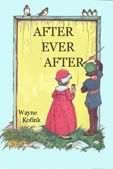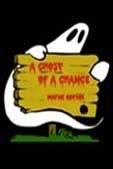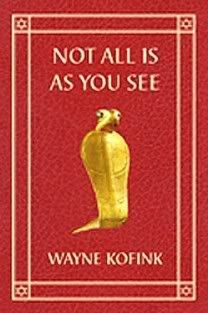This blog is only going to be of interest to people who pay attention to worship in the Evangelical Lutheran Church in America (ELCA). Don’t say I didn’t warn you if you get lost or bored.
 The ELCA publishing house sells a book Sundays and Season to help congregations with worship planning. That’s a useful thing, but on occasion I have my doubts if it is a good thing. Case in point. We Lutherans usually have a brief preparatory rite of public confession before we begin our worship. Sundays and Season provides seasonal confessions. Here is the one for November.
The ELCA publishing house sells a book Sundays and Season to help congregations with worship planning. That’s a useful thing, but on occasion I have my doubts if it is a good thing. Case in point. We Lutherans usually have a brief preparatory rite of public confession before we begin our worship. Sundays and Season provides seasonal confessions. Here is the one for November.
Most merciful God,
you know our failings better than we do;
our sins are revealed in the light of your face.
Our days and years pass by;
the things we trust fade like grass.
Be gracious to us, O God.
Guide us again to the water of life,
and renew in us the grace of holy baptism;
through Jesus Christ, our Lord. Amen.
Now maybe I am missing something, but does that confession actually confess anything? Yes, it has the words ‘failings’ and ‘sins’ in it, but it lacks the pointed expression “we (or I) have sinned.” And of course, since we haven’t gotten around to confessing sin, we never say I’m sorry or ask for forgiveness. There’s something very wrong here.
When I was growing up (in the days of churches without padded pews, air conditioning, or PowerPoint), we confessed with these words led by the minister:
Almighty God, our Maker and Redeemer, we poor sinners confess unto thee, that we are by nature sinful and unclean, and that we have sinned against thee by thought, word, and deed. Wherefore we flee for refuge to thine infinite mercy, seeking and imploring thy grace for the sake of our Lord Jesus Christ.
And then we all chimed in:
O most merciful God, who has given thine only-begotten Son to die for us, have mercy upon us, and for his sake grant us remission of all our sins; and by thy Holy Spirit increase in us true knowledge of thee and of thy will, and true obedience to thy Word, that by thy grace we come to everlasting life; through Jesus Christ our Lord. Amen
You knew you were a sinner.
What happened? Karl Menninger had asked the question in his startling 1973 book Whatever Became of Sin?” Menninger noted that the term ‘sin’ had gone out of public discourse. And with it, perhaps, the notion of personal responsibility. I’ve seen enough of that. I have heard of people defending murderers on the grounds of “television intoxication” or eating too many Twinkies. Locally somebody was acquitted after killing two people (the wife and daughter of an acquaintance of mine) in a car accident. Even though he had a blood alcohol count well over the legal limit, he wasn’t responsible. He suffered from “delayed gastric emptying.” Well, that’s how twisted society has become. It’s not my fault.
Just as disturbing is a blog I read (
Whatever became of sin) that notes the absence of the word ‘sin’ in the most recent edition of the
Oxford Junior Dictionary. The editors concluded children didn’t need to know that word. It just doesn’t appear very frequently in children’s literature. (By the way, the words “abbey, altar, bishop, chapel, christen, disciple, monk, nun, pew, saint” have also been dropped.)
Churches have contributed to the problem by playing down sin. This is not a product of the swinging sixties. Back in 1937 theologian H. Richard Niebuhr had condemned the modern version of the Gospel in which “A God without wrath brought men without sin into a kingdom without judgment through the ministrations of a Christ without a cross” (The Kingdom of God in America, 193).
Why is ignoring sin such a issue for me? Because if we don’t recognize our own sinful state, we will not turn to the gracious God for forgiveness. If we haven’t sinned, why do we need to be forgiven? If we don’t need forgiveness, why do we need a Savior? As a matter of fact, following that line of reasoning, we don’t need God. And the belief that we don’t need God is at the very heart of sin. Without recognizing sin, we are in bondage to sin and cannot free ourselves. As it is written in 1 John, “If we say that we have no sin, we deceive ourselves, and the truth is not in us. If we confess our sins, he who is faithful and just will forgive us our sins and cleanse us from all unrighteousness” (1 John 1:8-9).
Some people bemoan the loss of a recognition of sin because they think they can hammer on people about sin to make them change their ways. That does work. If it had, we could have stopped the story of salvation with John the Baptist who hollered about sin better than anyone. But John’s call to repentance wasn’t enough. We need a Savior, Jesus Christ. I only want to talk about sin as a way of helping people see the need for Christ.
Well, that’s gotten terribly preachy, but that is what I do for a living. Consider it just a signpost of your path.
May the Lord bless you on your journey and greet you on your arrival.
Wayne
Picture Return of the Prodigal Son, Rembrandt
12151
Labels: Confession, forgiveness, sin
 The ELCA publishing house sells a book Sundays and Season to help congregations with worship planning. That’s a useful thing, but on occasion I have my doubts if it is a good thing. Case in point. We Lutherans usually have a brief preparatory rite of public confession before we begin our worship. Sundays and Season provides seasonal confessions. Here is the one for November.
The ELCA publishing house sells a book Sundays and Season to help congregations with worship planning. That’s a useful thing, but on occasion I have my doubts if it is a good thing. Case in point. We Lutherans usually have a brief preparatory rite of public confession before we begin our worship. Sundays and Season provides seasonal confessions. Here is the one for November.











